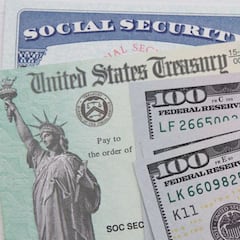Financial assistance of up to $500 for heating payments: Which state gives it and who qualifies?
Some Connecticut residents may be eligible to receive $500 in financial aid to help them pay their heating bills. Here are the requirements to qualify.

The United States provides various financial aid programs for low-income residents. Some are distributed at the federal level, while others are managed by the state. This means the assistance available to you may vary depending on the region in which you reside. In Connecticut, some residents are eligible to receive $500 to help pay their heating bills.
This program is led by the organization Operation Fuel, although it also receives partial financing from the state government. The main objective of the relief is to provide financial assistance for the payment of heating services.
READ ALSO: White House announces another $1.2 billion in student debt relief
Financial assistance of up to $500 for heating payments: Which state gives it and who qualifies?
In addition to being a Connecticut resident, you must meet other eligibility requirements that prove you really need the assistance. Here’s what you need when you apply:
- Entry proof from the four weeks prior to submitting the application
- Proof of income of another person residing in your household
- Name of fuel supplier or utility bill
READ ALSO: The first projections for COLA 2025
The companies that are included in this program are: Eversource, UI, Yankee Gas, SGC and CNG.
We have received a little over $800 in donations already! Can you help us get to $1,000?!
— Operation Fuel, Inc (@OperationFuel) February 15, 2024
Help a neighbor in need this winter by donating through the @travelerschamp Birdies For Charity Program to receive a 15% match! 💙💚
To donate, go to: https://t.co/cGm4LyZtlU pic.twitter.com/I5aiuG9nvX
How do I apply for the $500 aid?
The maximum you can receive through this program is $500, and the exact amount will depend on the situation of each request. To apply for aid, you only need to submit an online application through the Operation Fuel website. The deadline to submit the application is on Friday, March 1, so there is still more than a week to apply.
Related stories
Connecticut residents can also apply in person at one of the centers associated with Operation Fuel. To find out which center is close to you, check the company locator or call 211.
Beneficiaries can only be eligible for one grant or aid per year. That is, if you are eligible for this year’s payment, you will not be able to request relief again until 12 months have passed after the issuance of your last check.


Complete your personal details to comment